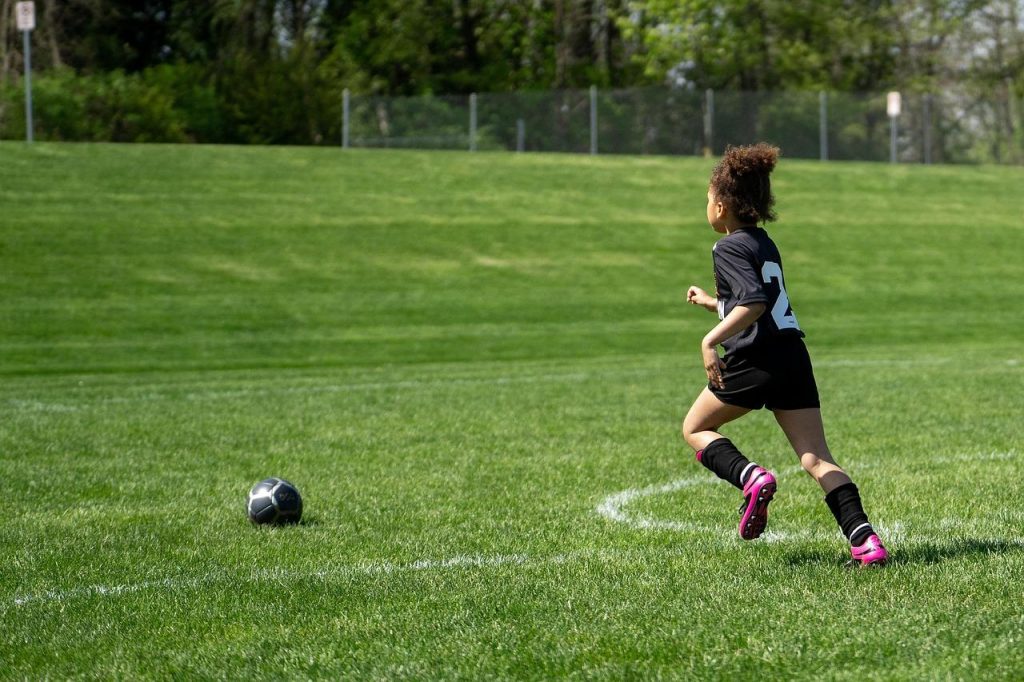In the evolving landscape of athletic competition, the pursuit of fairness and equality has never been more vital. Recognizing this, the U.S. Department of Health and Human Services’ Civil Rights Office is stepping forward with renewed vigor to ensure that every girl athlete competes on an even playing field. This initiative marks a pivotal move toward safeguarding civil rights within sports programs, championing inclusivity, and addressing complex challenges that intersect with gender identity and equal opportunity. As the dialogue around girls’ sports intensifies nationwide, HHS is positioning itself at the forefront-advocating for policies that honor both fairness and dignity, and reaffirming the fundamental principle that sports are for all.
Advancing Equity in Athletic Opportunities for Girls
In recent years, the commitment to leveling the playing field in girls’ athletics has gained unprecedented momentum, spearheaded by the diligent efforts of HHS’ Civil Rights Office. Their initiatives go beyond policy enforcement, aiming to cultivate an environment where every young female athlete feels valued and empowered. Through strategic partnerships and community engagement, the office champions access to quality training facilities, equal funding, and expanded competitive opportunities. This proactive stance ensures that barriers-whether economic, geographic, or cultural-are systematically dismantled, making fairness not just an ideal but a tangible reality for aspiring sportswomen nationwide.
Key elements of their approach include:
- Rigorous oversight to guarantee compliance with Title IX provisions
- Targeted grants aimed at underfunded girls’ athletic programs
- Educational campaigns to raise awareness among schools, coaches, and parents
- Accessible reporting channels for grievances related to discrimination or inequality
By intertwining enforcement with education, the office not only upholds legal mandates but also fosters a cultural shift that celebrates and supports female athletes. This comprehensive approach underscores a dedication to building a future where the thrill of sport and the spirit of competition are truly inclusive for all girls.
Addressing Discrimination Through Policy Enforcement
The Civil Rights Office is taking decisive steps to ensure that policies are not only written but rigorously enforced to safeguard the rights of all participants in girls’ sports. Through comprehensive oversight and collaboration with educational institutions, they are setting clear expectations for compliance with federal civil rights laws. These measures emphasize the necessity of transparency and accountability in how sports programs implement inclusion guidelines, aiming to eliminate biases that can marginalize female athletes. By reinforcing the legal framework, the office empowers schools and sports organizations to foster equitable environments where every girl has the opportunity to compete fairly.
Central to these efforts is a multifaceted approach that relies on:
- Proactive monitoring of compliance with Title IX and other anti-discrimination statutes;
- Robust complaint resolution procedures that ensure swift and just outcomes;
- Educational outreach programs designed to raise awareness among coaches, administrators, and athletes;
- Collaboration with state and local agencies to align policies and share best practices.
This holistic enforcement strategy not only addresses current disparities but also anticipates future challenges, promoting a sporting culture where fairness and respect are fundamental for all girls.
Collaborative Strategies for Inclusive Sports Environments
Building truly inclusive sports environments requires more than policy- it demands active collaboration among coaches, athletes, families, and administrators. By fostering open dialogue and shared goals, schools can create support networks that celebrate diversity and ensure every athlete feels valued. Strategies such as interactive workshops on gender respect, peer mentorship programs, and the implementation of clear reporting channels for concerns help establish trust and accountability across all levels of participation.
Successful collaboration also hinges on embracing flexibility and creativity when designing programs. Some effective practices include:
- Integrating inclusive language and practices in team meetings and communications
- Hosting family engagement events to broaden understanding and support
- Partnering with civil rights experts to tailor training specific to local community needs
Such efforts not only empower students but also cultivate a culture that champions fairness and respect, setting the foundation for equitable opportunities in girls’ sports.
Best Practices for Schools to Ensure Fair Participation
To foster an equitable environment in girls’ sports, schools must implement transparent and consistent policies that respect the rights of all athletes. Prioritizing open communication with students, parents, and staff creates a shared understanding of eligibility criteria and participation guidelines. Schools should also invest in training for coaches and administrative personnel on civil rights compliance and inclusion best practices, ensuring that fairness is embedded at every level of athletic programming. Establishing clear mechanisms for reporting and addressing concerns promotes accountability and trust within the school community.
Key strategies for promoting fair play include:
- Implementing gender-inclusive policies aligned with federal civil rights regulations
- Regularly reviewing participation data to identify and address disparities
- Encouraging diverse leadership in athletic departments and coaching staff
- Creating safe spaces for dialogue about gender identity and inclusivity
- Providing equitable access to resources, facilities, and competitive opportunities
As the landscape of girls’ sports continues to evolve, the proactive stance of HHS’ Civil Rights Office serves as a vital beacon of fairness and inclusion. By championing policies that uphold equal opportunities and safeguard the rights of all athletes, this office not only fosters a more level playing field but also empowers a new generation of young women to compete with confidence and pride. In doing so, it reaffirms that the spirit of sportsmanship transcends gender, ensuring that every girl’s passion and talent are given the respect and recognition they deserve.


